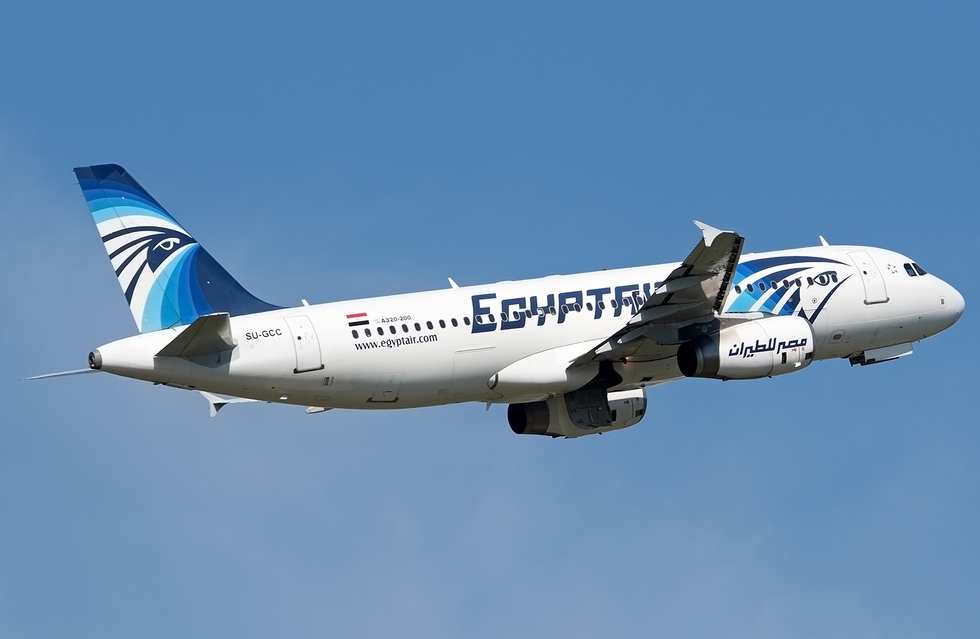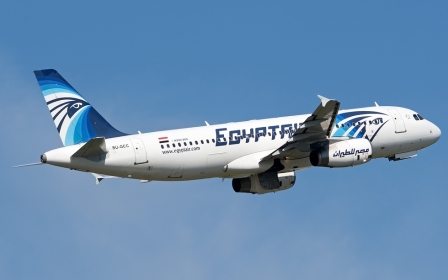EgyptAir: Troubled airline with a turbulent history

Following a series of disastrous and often bizarre incidents involving Egyptian airspace, the reputation of EgyptAir has taken a pounding.
Even before the latest tragedy, which saw an EgyptAir flight from Paris to Cairo crash early on Thursday, the national airline was beset with problems.
On Monday, the state-owned airline announced that it would be offering 50 percent discounts for domestic and international flights between 23 May and 1 August in a bid to boost sales.
The announcement came a day after the company resumed normal flights following industrial action by its workers, who staged a four-day strike to demand a wage hike.
The workers were given the pay increase, but EgyptAir’s troubles are likely to prove more difficult to remedy.
The airline, along with the country’s once vibrant tourist industry, has been hard-hit by ongoing political turbulence that has rocked Egypt since 2011 when long-time leader Hosni Mubarak was overthrown by a popular revolution.
EgyptAir hit the headlines in March when a flight from Alexandria to Cairo was hijacked by an Egyptian man who claimed to have a bomb and forced the crew to divert the flight to Larnaca Airport in Cyprus.
It later emerged that the bomb was a fake and that the man had engineered the situation as a means of getting the attention of his estranged wife in Cyprus.
An official from the Egyptian foreign ministry was quoted describing the man as an “idiot”.
That was not the first hijacking to rock the airline. In 1976, a Cairo to Luxor flight was hijacked by three armed gunmen.
In 1985, three Palestinian militants from the Abu Nidal group took control of a flight en route from Athens to Cairo and forced it to land in Malta. Sixty people, including the hijackers, were killed after an attempted raid on the plane went bad.
Eight years later in 1993, tragedy struck again when a flight bound for Yemen was hijacked by an attacker with a large knife.
In perhaps one of the more bizarre incidents, a father and son duo took over a flight from Luxor in 1996 and diverted it to Libya where they tried to deliver a message from God for Libyan leader Muammar Gaddafi. Then in 1999, a man managed to take over a plane with a ballpoint pen that crew mistook for a knife. The plane was diverted to Germany and the attacker soon arrested by authorities.
More recently, a man successfully convinced crew that a jar of hair gel was a bomb and demanded to be taken to Afghanistan, although crew eventually managed to overpower him before he reached the cockpit. In 2009, a Sudanese man also pulled a knife out on board, but was overpowered by two security officials.
EgyptAir’s predecessor, Misr Airlines, was founded in 1933 and is often trumpeted as the first airline in the Arab world.
However, its recent history has been patchy at best with management issues also hitting its image hard.
The company is led by Hisham el-Nahas who took over in 2015 following the resignation of former chairman Sameh el-Hefny, forced to step down due to accusations of mismanagement.
According to Egyptian news website Madr Masr, Hefny was accused of purchasing, but not actually using, new planes and allowing scrap to accumulate on the runway of Cairo International Airport. During his tenure, a piece of land owned by the company was also turned into a dumping ground.
The airline is also no stranger to crashes. In October 1999, an EgyptAir flight from Los Angeles to Cairo crashed into the Atlantic Ocean killing all 217 passengers on board.
Investigators later concluded that the pilot, Gamil el-Batouty, was suicidal and downed the plane deliberately.
A tape recovered from the crash appeared to reveal Batouty saying "I place my fate in the hands of God" several times before shutting off the plane's engines.
Osama Bin Laden later reportedly cited the crash as inspiring him to carry out the 11 September attacks in 2001.
As the Islamic State group has continued to grow in the Sinai Peninsula, it has targeted planes in Egypt. In November 2015, the group claimed the downing of a Metrojet airliner headed from the popular tourist resort of Sharm el-Sheikh to Russia.
All 224 people on board were killed by what experts widely believe was an explosive device smuggled on board. Many Western travel companies and airlines stopped direct flights to Egypt following the attack.
One concern for flight safety has also been a perceived lax approach to security in Egypt’s airports.
Following the downing of the Metrojet plane, a British tourist told the Independent that when he visited Sharm el-Sheikh airport earlier in the year he had been "offered the chance to pay £20 [$30] to skip queues and baggage checks".
Dale Parkyn, a 47-year-old from Yorkshire in the UK, said he and his wife had been approached by a man in military uniform and offered a chance to skip security.
"What we did is we discussed it and he then produced a £20 note and said, 'Have you one of these?' and you can avoid the queue.”
The series of incidents has driven many to eschew Egypt as a holiday destination.
Speaking following the March hijacking, Kinda Chebib, a lead analyst at independent market research firm Euromonitor International, warned that the impact of various crises was set to hit Egypt’s tourist industry and its airlines for some time to come.
“Travellers are likely to remain very hesitant to travel to this part of the Middle East and will opt for destinations like the Gulf countries or elsewhere in North Africa,” she said.
“Although Egypt is known for quickly bouncing back from different crises, we believe that the recent events will slow down the ambitions of the local government to achieve the target of 20 million foreign tourist arrivals by 2020.”
New MEE newsletter: Jerusalem Dispatch
Sign up to get the latest insights and analysis on Israel-Palestine, alongside Turkey Unpacked and other MEE newsletters
Middle East Eye delivers independent and unrivalled coverage and analysis of the Middle East, North Africa and beyond. To learn more about republishing this content and the associated fees, please fill out this form. More about MEE can be found here.




